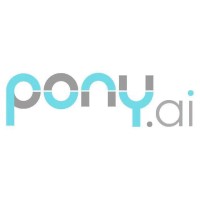
Pony.ai
Pony AI Inc. (“Pony.ai”) is a global leader in the large-scale commercialization of autonomous mobility. Leveraging its vehicle-agnostic Virtual Driver technology, full-stack autonomous driving technology that seamlessly integrates its proprietary software, hardware, and services, Pony.ai is developing a commercially viable and sustainable business model that enables the mass production and deployment of vehicles across transportation use cases. Founded in 2016, Pony.ai has expanded its presence across China, Europe, East Asia, the Middle East, and other regions, ensuring widespread accessibility to its advanced technology. Pony.ai is among the first in China to obtain licenses to operate fully driverless vehicles in all four Tier-1 cities in China (Beijing, Guangzhou, Shanghai, Shenzhen) and has begun to offer public-facing, fare-charging robotaxi services without safety drivers in Beijing, Guangzhou and Shenzhen. Pony.ai operates a fleet consisting of over 250 robotaxis. To date, Pony.ai has driven nearly 40 million autonomous testing and operation kilometers (nearly 24.8 million miles) on open roads worldwide.






